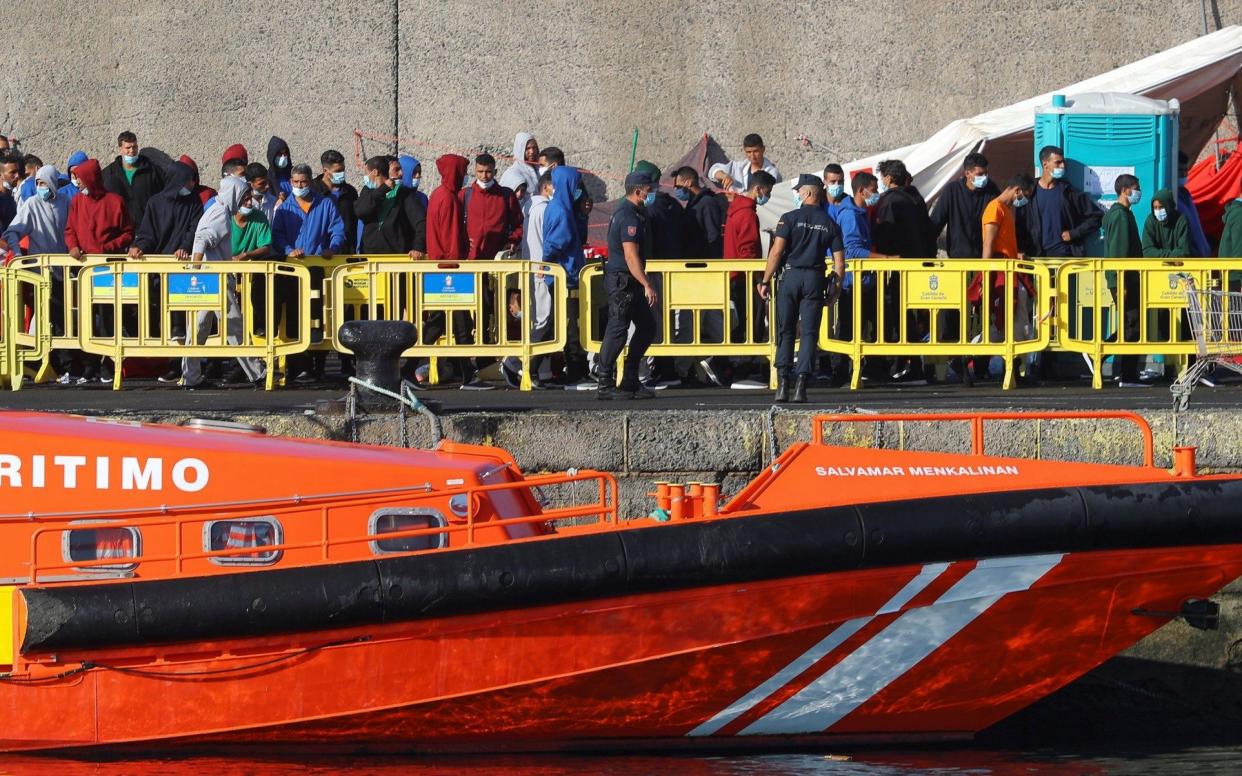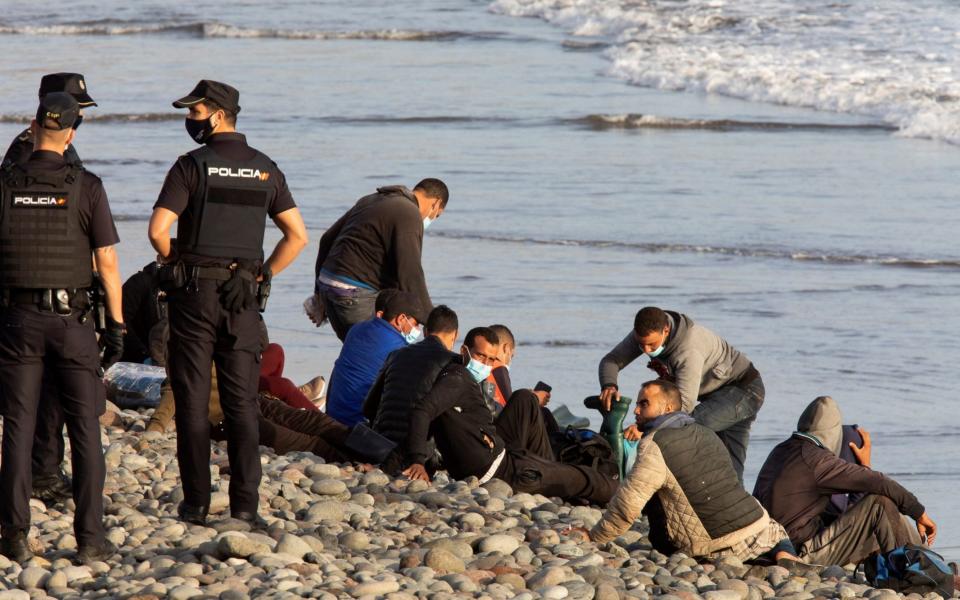Spain criticised for separating mothers and children for months during Canary Islands migrant influx from Africa

The Canary Islands government has demanded that Spain’s immigration officials stop the “cruel” separation of migrant parents and children.
The call comes after a report by Cadena Ser radio station revealed this week that a dozen children had been separated from their mothers for periods lasting up to two months while DNA testing was carried out to verify they were related.
“It’s abhorrent. These people have crossed the Atlantic, one of the most dangerous migration routes, and separating mothers from children is an additional cruelty,” Iratxe Serrano, the Canary Islands government’s director of child protection, told The Telegraph.
“These children must be with their parents while awaiting the result of a DNA test, if this is considered necessary,” Ms Serrano said.
She added that the practice of separating families had become more common since the start of the Covid-19 pandemic and affected people who had official documentation that showed they were related.
According to Spain’s interior ministry, more than 8,000 migrants have reached the Canary Islands from Africa by sea so far this year, compared to just 1,000 in the same period of 2019.
Spain’s Public Prosecutors’ Office, which oversees the processing of migrant minors on arrival in Spain, said that officials in the Canary Islands had toughened protocols after what it described as “an alarming number of cases” in which women had disappeared from migrant shelters with children before testing had revealed that they were not the biological mothers.
“It was vital to protect minors from the risk of being used for ulterior purposes, and even become victims of trafficking,” the Public Prosecutors’ Office said in a statement.
Cadena Ser reported on the case of a two-year-old girl called Awa, who had been separated last week from her mother “as a precaution” on reaching the island of Gran Canaria for three days until her carers went to find her mother in a temporary migrant centre because the child would not stop crying.

“We don’t want to experience such a situation again. The institutions are there to protect minors and this is a measure that generates pain,” said Isabel Mena, the head of child protection for Gran Canaria.
Cadena Ser reported that DNA tests on six children separated from their parents on August 29 after reaching the island of Fuerteventura had not been completed until last week, and that four of the six were still to be reunited pending the order from Las Palmas prosecutor’s office.
Luis del Río, head of the Canary Islands prosecutors office, said that the current protocols were being re-evaluated in the light of recent cases.

